Waste management is a serious problem in Nigeria. It is a problem that starts at a cultural level: many of the populace believe that once they remove waste from their homes it is no longer their concern, and you often see people disposing of their household waste in the streets at night. Once the waste gets out into the streets, it’s perceived as the duty of the government to handle it.
However, I have never yet heard of any Nigerian politician making waste management a feature of his or her manifesto during the election campaign process. Having said that, a few of Nigeria’s political leaders deserve to be commended for coming to terms with the fact that waste has to be managed properly, even if such issues were far from their minds when they entered political office.
Laying down the law
Nigeria does have a waste legislation framework in place. Its focus has been on the most toxic and hazardous waste: partly in response to some major pollution incidents in the 1980s, the government took powers in relation to Hazardous Waste in 1988. In the same year, the Federal Environmental Protection Agency was established – and was subsequently strengthened by the addition of an inspectorate and enforcement department arm in 1991, with divisions for standard regulation, chemical tracking and compliance monitoring. These laws have since given rise to regulations and guidelines pertaining to environmental and waste management issues.
Under our laws, waste management in each state is the duty of the local governments that fall within it, but few are taking an active approach to implementing and enforcing the sensible measures that the regulations require. A small number of states have taken over this task from local government, and Delta State’s decision to do this has led to significant new investment in waste management.
One of the fruits of that investment is the Delta State Integrated Waste Management Facility at Asaba. It was developed when the Delta State government decided to put an end to the non-sustainable dumping of waste in Asaba, the state capital. Boskel Engineering Nigeria Limited was contracted to develop a facility that will treat waste both household and clinical waste generated locally.
Integrated and separated
It is described as an integrated waste management facility because it includes a composting department, a recycling department and a (non-EfW) incineration department. Trucks carrying waste are weighed in as they come into the facility. From the weigh bridge, they move to the relevant reception bay – there are separate ones for household and clinical wastes – to tip their load, and are then weighed again on the way out.
Clinical waste is taken directly for incineration, but household wastes are sent along conveyors for sorting. Recycables and compostable materials are, so far as possible, separated both from other waste and from one another. Each recyclable stream ends up in a chamber where it can be prepared for sale. The compostable materials are moved to the composting section, which uses aerated static pile composting.
The remaining waste is conveyed into the three incinerators – moving grate, rotary kiln and fixed end– for combustion. The resulting ash is recycled by mixing it with cement and sharp sand and moulding it into interlocking tiles. The stacks of the three incinerators are fitted with smoke cleaning systems to reduce emissions. The process produces wastewater, which is channelled to a pit where it is treated and reused. Overall, 30% of the waste is composted, 15% recycled and 55% incinerated.
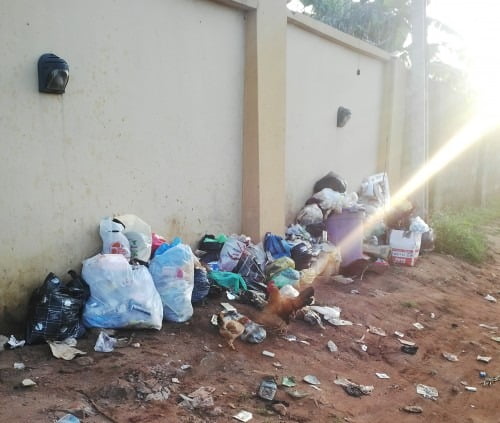
Fly-tip on the wall: formal waste management has been slow to get established in Nigeria. Photo by Benneth Obinna Obasiohia.
There are many examples of sophisticated waste infrastructure being built in developing countries, but failing because the necessary collection systems were not in place to support them. To ensure that this problem is avoided at Asaba, the Delta State government is working with a group known as the Private Sector Participants (PSP). Each member of this group has trucks assigned to them and has been directed to collect household waste from different parts of the city, for delivery to the facility for treatment. The arrangements made by each PSP are different: some collect from outside individual properties, and some from communal sites; most collect waste that is found in the streets; and while each is subsidised by the state, households also have to pay towards the cost.
Before the Asaba facility was developed, most of the wastes generated in Asaba were disposed of at a dumpsite just adjacent to the Delta State Airport. This created a pungent odour, as well as visual disamenity for people nearby. A great deal of remediation work is now taking place at the dumpsite, which is vastly improving the local environmental quality.
Making Warri on waste
Of course, although this is an improvement there remains more to do. First on the list is education. People do not know how sustainable waste management can impact positively in their lives, reducing their exposure to toxins as well as improving their surroundings. Nor do they understand that recycling a beverage can or a plastic bottle will cost less than producing one from virgin materials and will have a lesser environmental impact. There remains a good deal of cultural change and education that is needed before people will stop throwing waste and litter on the streets – but there are few countries where, to some extent, the same would not be true.
Next is the lack of infrastructure. Nigeria has 36 states and a federal capital, yet the facility in Asaba is the first publicly commissioned one of its kind in the country; there are also some privately owned incinerators that a few companies in Port Harcourt use to treat wastes from vessels (ships), hospitals and industries. Lagos state and Abuja are relatively advanced, simply by virtue of having put in place a few managed landfills, but they are still far from having the level of facility that Asaba can now boast.
The backbone of Asaba’s progress is the state government’s commitment to put a proper waste management solution in place. We’ve seen the impact in the form of infrastructure, collections and remediation, and law enforcement work is starting to change people’s perception about waste management in Delta State. At the moment, plans are being concluded to setup another facility in Warri, Delta State’s industrial hub, which will be twice the size of the Asaba facility.
My hope is that the progress made by Delta State will be a beacon for other states’ governments. The example we are providing of cleaner, hygienic, more environmentally responsible waste management, and the positive changes that is bringing about, should inspire new development elsewhere in the country, which could equal or even exceed Delta State’s results. So whilst Nigeria’s track record on waste may leave a lot to be desired, the path ahead could be a great deal more promising.

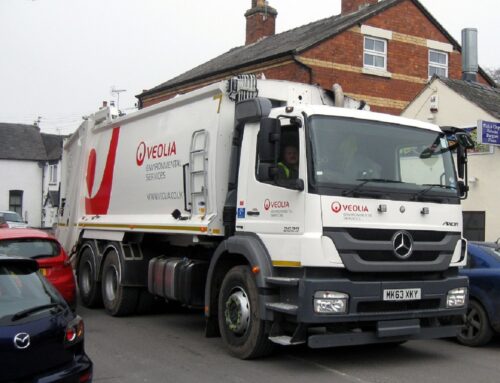
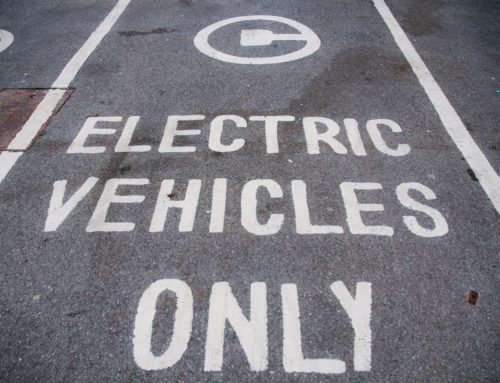
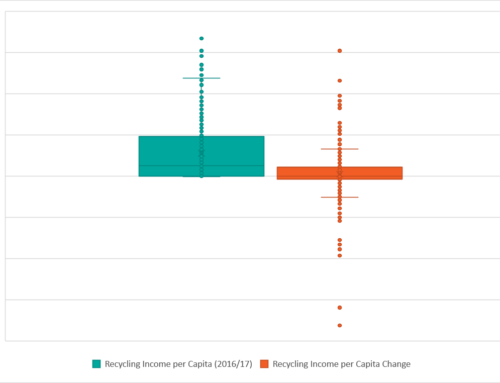

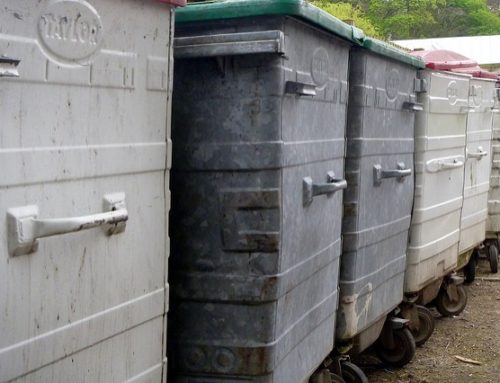
Ben Please how can i reach you for a consultancy project. very urgent. thank you
reach me on rainsweetwater@yahoo.com
BEN, I really commend u guys,u are doing a great job in asaba Delta state,but i would like u guys to extend your work scope to the city of warri. Warri city need a plant like this ,because warri is the city of domestic waste. Thanks .
Hi, benneth, I commend your effort. What went wrong because information reaching us is that the facility has been shut down two weeks ago by the Delta state government. I will like to hear from you. you can reach me via email aoghenemaro2@yahoo.com.
Hi Benneth,
I want to know the recyclates being processed presently at the Asaba facility.
Hi Oghenero,
The recyclates recovered from the facility are steel metal(tin tomatoes,tin milk,etc),aluminium cans,PET bottles,LDPE films,HDPE and PP plastics.
Congratulations. Good news to begin the year. It looks like a sensible approah. Note. Integration of waste, energy, material recovery and organic compounds is difficult and a not solved matter even in “developed ” countries. I am only a little concerned about the size of this facility. The bigger the facility the more difficult to handle.
Hi Gabriel, the facility handles 1000 tonnes of waste per day. It has no energy recovery facility. We have the recyclable sorting line, composting department and incineration(without energy recovery).
Hello Obi,
This is a big development because I know the situation. I hope other states will see why its important to go this way. I hope to meet you some day soon….
Hi Ike, thanks for the comment. Our belief is that in no distant time, other States will follow the Delta State path in terms of waste management. Hope to meet you soon.
Excellent article, Benneth. I was wondering how this ties in with the energy policy im Nigeria. Having been involved in energy from waste
Perhaps I can finish without this machine making decisions for me.. I was commenting on the energy situation in Nigeria and how this is tied in with waste management. Is this something that is under development?
Hi Benneth,
It’s great to hear that there’s a positive waste story emerging out of Nigeria. Let’s hope that other areas follow Delta State’s example, and that good practice spreads. Maybe you could say a little about how much waste the Asaba plant is receiving, and what the market is like for compost and recyclate in Nigeria.
@Chris, the energy situation in Nigeria is such that households can get up to 6 to 16 hours of electricity in 24 hours. This varies a lot depending on the location. In some areas, they stay days without electricity. Some areas receive up to 16 hours a day. I must say we need to improve in our electricity generation and distribution in order for our economy to grow the more. Technically, there is no tie between waste management and energy in Nigeria at the moment. However, I am confident there will be development in the direction very soon.
@Peter, the facility handles a maximum of 1000 tonnes of waste per day. We have local farmers who prefer the composts to inorganic fertilizers because of its accessibility, performance and cost. There is a huge market for the recyclates in Nigeria and this causes scavengers to pre-sort the wastes before it gets to the facility. As a result, much of the recyclates are been removed from the waste stream before the waste gets to the facility.